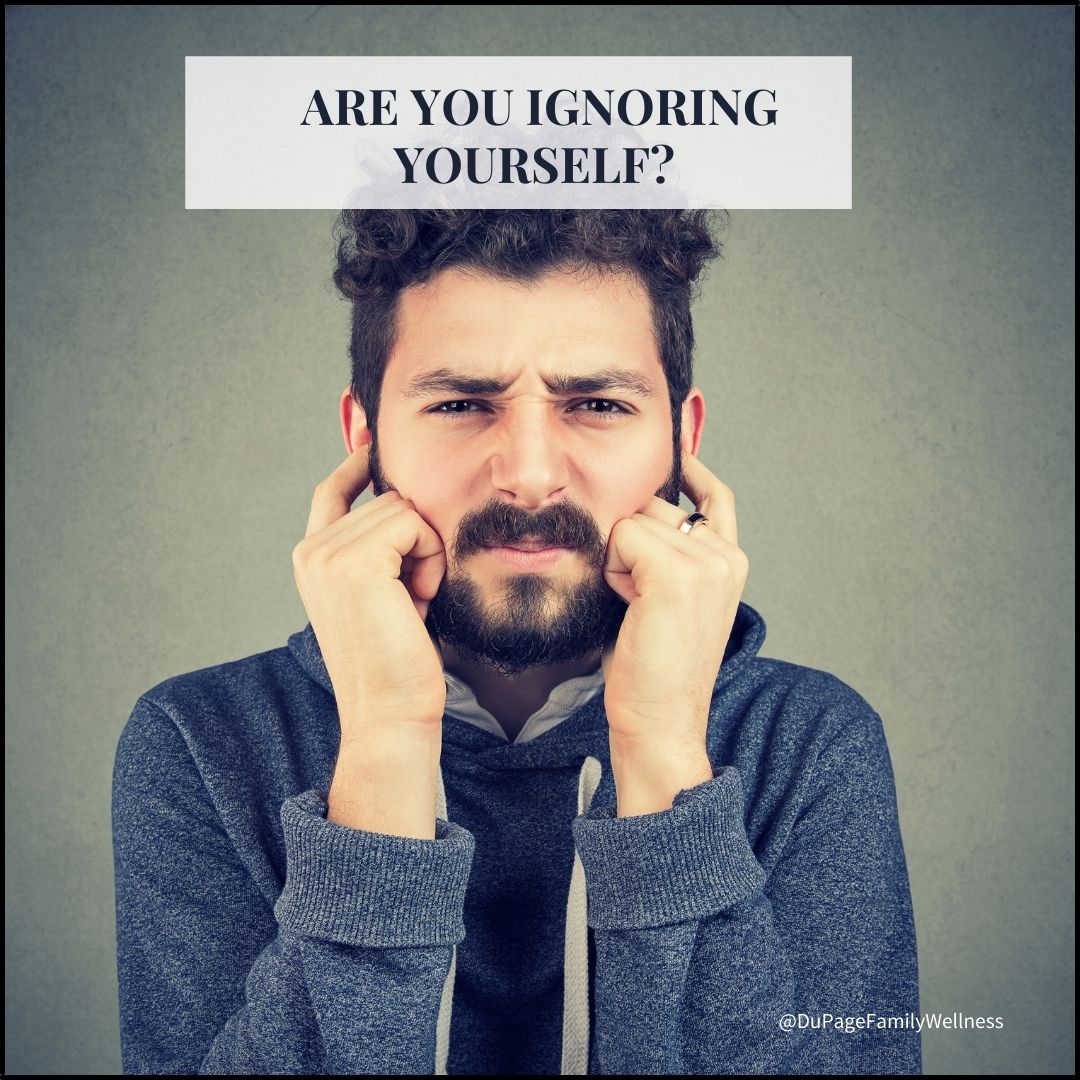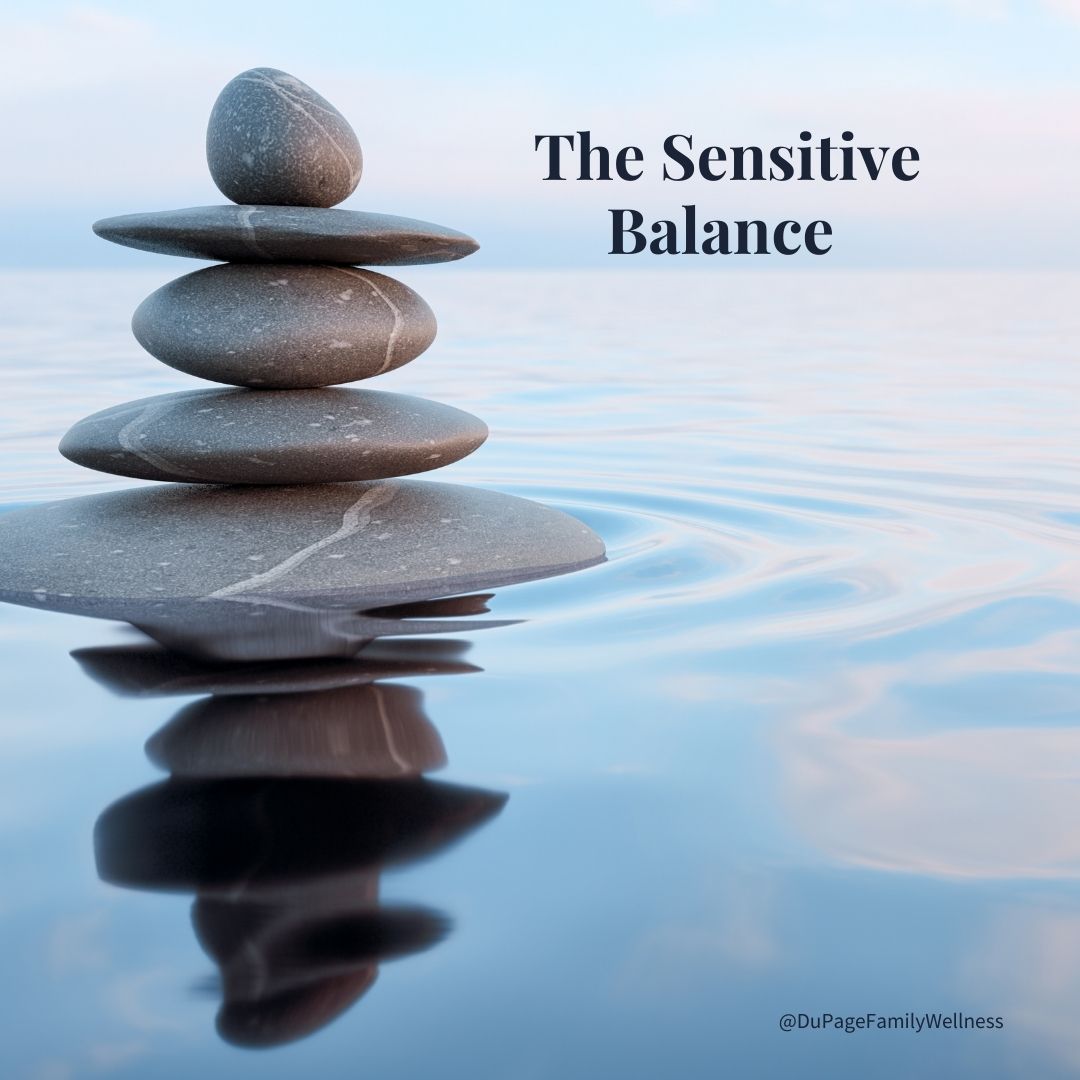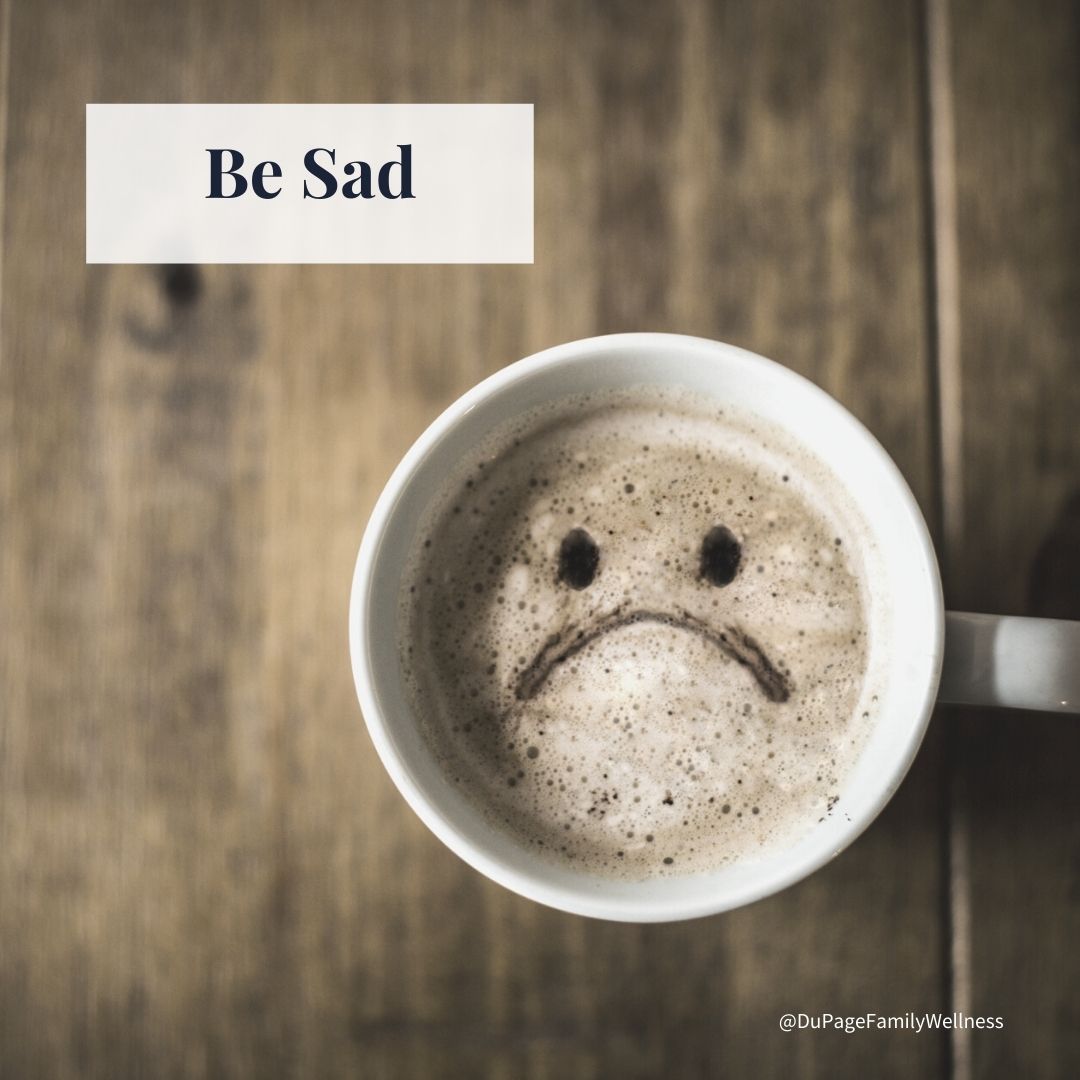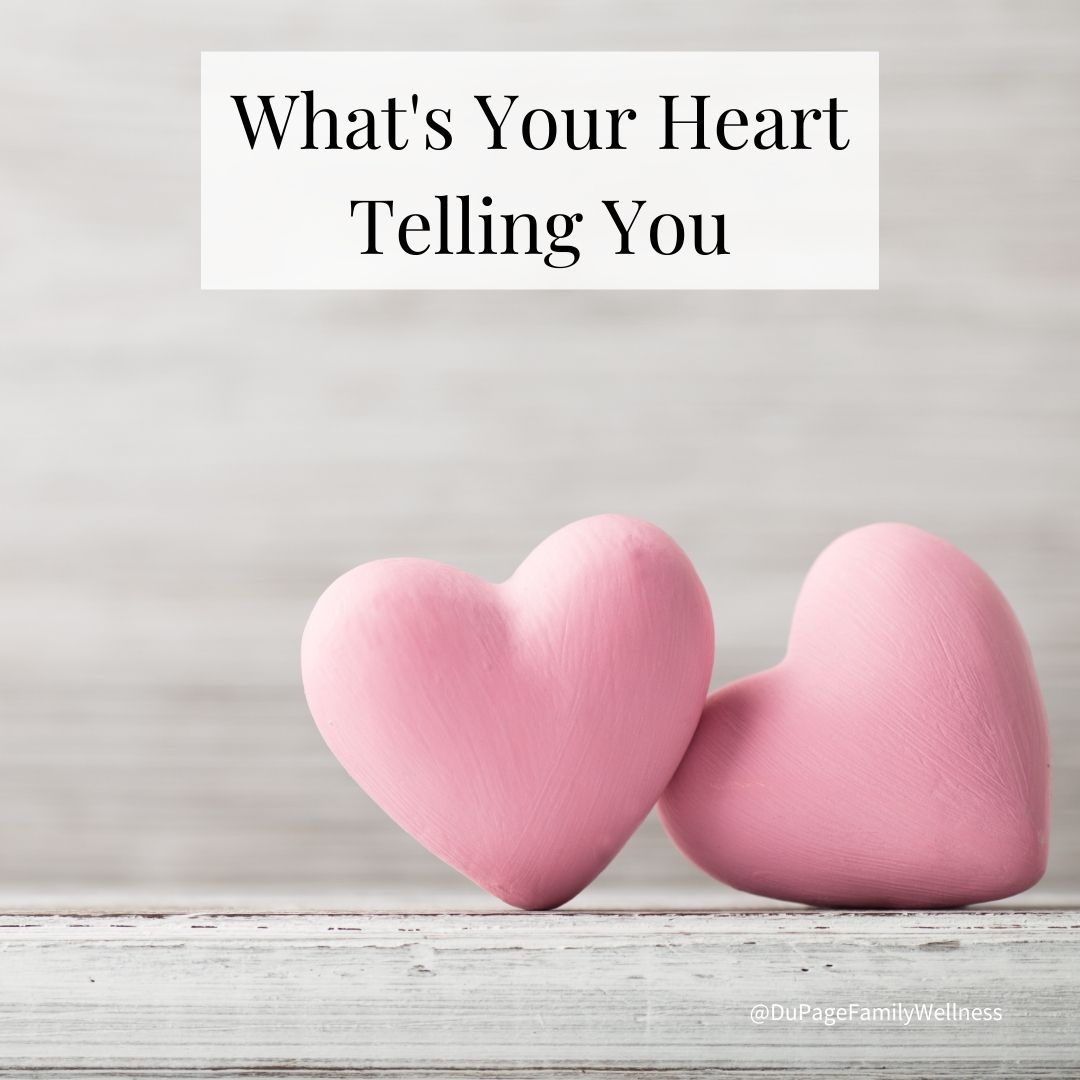 In our fast paced society, many of us have lost the ability to simply be present in our bodies. We go through our days following our schedules, and to-do-lists, never really noticing what is going on inside.
In our fast paced society, many of us have lost the ability to simply be present in our bodies. We go through our days following our schedules, and to-do-lists, never really noticing what is going on inside.
From an early age many of us have unintentionally been taught to ignore our body’s sensations. While it can be convenient to disregard these sensations at times, if we consistently disregard what our body is telling us, there may be a price to pay!
Let’s look at this issue and reevaluate the importance of listening to our bodies!
How We Learn to Ignore Our Bodies
Most of us have been taught, in subtle ways, to ignore our body since we were very young. These messages were often given by well intentioned adults over the course of our lives. Some examples of these messages include:
- Having to wait until mealtimes to eat.
- Being required to clean your plate.
- Waiting to go to the bathroom until between classes.
- Being taught to hold back when you have to pass gas or burp.
- Having our feelings minimized, dismissed, or punished.
- Being pushed to keep going when we were tired and needed to rest.
Not all of these lessons are bad. Sometimes we cannot satisfy our bodily needs immediately, however it can be damaging when we learn to ignore them all the time.
What About Learning Self Control?
We all realize that we can’t act on our bodily sensations all the time. If you are in an important meeting it would be inappropriate to grab a snack, go to the bathroom, or loudly burp. But what if there is a way to honor both the body and social norms.
Ideally, we would recognize the messages that our body sends and then choose how to act on them. We don’t need to follow these sensations impulsively, but it is important to recognize them and consciously choose our response.
Read more ...
 Have you been enjoying a glass of wine in the evening? Do you enjoy a cocktail with your friends on occasion?
Have you been enjoying a glass of wine in the evening? Do you enjoy a cocktail with your friends on occasion?
Many of us have come to rely on a drink to help us wind down or have fun with friends. And while there is nothing wrong with an occasional drink, it is important to understand the effects it has on the body, especially in regards to our hormones.
What Are Hormones?
Hormones are chemical messengers within the body that are secreted by glands in the endocrine system. These messengers tell the tissue and organs in the body what to do. The proper balance of hormones is crucial for both physical and mental health.
When something happens to make one hormone increase the other hormones are affected. It's like a delicate dance with some hormones following another's lead.
Alcohol and Hormones?
Alcohol is thought to have a complicated relationship with the balance of hormones within the body. Let’s take a look at some of the ways moderate alcohol impacts this system.
- Estrogen - Alcohol has been found to raise the level of estrogen in the body. There are a few ways that this may happen, but let’s take a look at one of the mechanisms in which this happens. Both alcohol and estrogen are processed in the liver. When the liver is busy handling alcohol, it prevents the liver from detoxing estrogen as efficiently. This results in a buildup of estrogen in the system.
Read more ...
 We all want to be happy, but the reality is that life is more complex than simply being happy all the time. Being human means we will experience a range of emotions - joy, sadness, anger, compassion, frustration, and so many more!
We all want to be happy, but the reality is that life is more complex than simply being happy all the time. Being human means we will experience a range of emotions - joy, sadness, anger, compassion, frustration, and so many more!
There is a richness that comes when we embrace all these emotions, but many people really fight against the difficult ones. Trying to avoid difficult emotions may seem wise, but the truth is we need to learn to embrace all of our emotions.
Researcher and author Brene Brown explains that “we can not selectively numb emotions, when we numb the painful emotions, we also numb the positive emotions.”
Let’s take some time to consider how to handle these difficult emotions and explore if we are dealing with them in a healthy way!
Difficult Emotions NOT Welcome
As a child many people are given the message that their difficult emotions are not acceptable. It may be that their parents didn’t recognize the child’s emotions. They were simply told to “look on the bright side” or to “be grateful” for what they had. Some parents were so disconnected from their own emotions, that they couldn’t provide a healthy role model on how to handle intense feelings. Still other children were outright ridiculed for showing “negative” emotions, even being told “stop crying or I’ll give you something to cry about.”
These techniques are often used as an attempt to shut down the child’s emotion when it is uncomfortable for the adult. Even well meaning parents may use them as ways to distract children from dealing with difficult emotions when the emotion feels too big to handle. But having a parent gently accept and guide their child through these big emotions, is an important step in teaching the child to regulate their own emotions.
Without the ability to self regulate, people are often left either flooded by their emotions or trying to push the difficult emotions away. Being flooded by intense emotions can be really overwhelming, but pushing them away is damaging as well. When we “put on a happy face” before allowing ourselves to experience our emotions, we miss out on the valuable information those emotions are giving us.
Why Even Difficult Emotions Are Important
According to Psychiatrist Sheri Van Dijk, “emotions serve important functions and are very necessary, even though they can be really painful at times.” Emotions provide you with information, motivate you towards action, and help you communicate more effectively.
Instead of numbing our emotions, counselor Hannah Rose says, “we must show up for all of our emotional experiences, no matter how painful they are, or they are destined to continue manifesting in our lives in different ways... Actively processing and allowing ourselves to show up for our emotions is what heals all wounds.”
Leaning into difficult emotions and not avoiding them can actually open you up to a whole new experience. According to Brown, “mindfully practicing authenticity during our most soul-searching struggles is how we invite grace, joy, and gratitude into our lives.”
Embracing All Emotions
Here are some ways that you can start intentionally trying to embrace your emotions today.
- Recognize your emotions - If it is easier start with the positive emotions, and begin noticing what you feel. Ask yourself what you are feeling throughout the day. Make yourself name the emotion.
- Notice your body - Emotions often manifest themselves physically. If you have trouble noticing your emotions, listen to your body. Is your throat tight? Are your shoulders tense? Does your head or stomach hurt? These things are clues that can help you notice what you are feeling.
- Use a feelings chart - There are many feeling charts that provide some language around feelings. These can be very helpful for those who struggle to know how they feel. (A great one is the feeling wheel.)
- Repeat gentle mantras - Using a mantra can be a great way to release some of the judgement you may have towards yourself when you experience negative emotions, so that you can begin to accept difficult emotions. (i.e. “My feelings matter,” “It’s okay not to be okay,” “This suffering is part of the human existence,” etc.)
- Invite people you trust into your emotional world - We are often our own worst critics, judging ourselves for things we would lovingly accept in a friend. Sharing your feelings with a trusted friend who accepts and validates your emotions can be extremely helpful in learning to accept yourself.
- Visualize emotions like a wave - Waves rise up, peak, and then dissipate on the shore line. Like waves, you can’t hold emotions back without a huge amount of effort, so learning to let them wash over you without resisting is a valuable skill. Just like the wave releases the energy it carries when it crashes against the shore, the emotions energy will settle after it washes over you.
If you find that these exercises are ineffective or bring up more emotion than you are comfortable handling on your own, you may want to consider getting some extra support. A good therapist is skilled at helping clients navigate their emotional world and learn to self regulate. (If you would like a referral to a good therapist, please don’t hesitate to ask.)
It is never too late to learn to accept all our emotions and listen to what they are telling us. Leaning into difficult emotions can be scary at first, but ignoring them can lead to all kinds of trouble - emotionally, relationally, and even physically.
Dr. Jamie
 Between work, activities, and family, life can feel pretty overwhelming. You may feel like there aren’t enough hours in the day, so there simply isn’t time to get a good night’s sleep. But sleep is one of the most fundamental functions we do each day.
Between work, activities, and family, life can feel pretty overwhelming. You may feel like there aren’t enough hours in the day, so there simply isn’t time to get a good night’s sleep. But sleep is one of the most fundamental functions we do each day.
Without good sleep you will not only feel terrible, but you will begin to damage your body. So, how much sleep do you need, and how can you tell if you are getting enough?
Let’s dive into that question and see what your body needs to function at its best.
Sleep Research
Researchers took a group of people, put them in a stimulus free room for 14-24 hours a day, and monitored their sleep. There were no clocks, so subjects didn’t know when they were going to bed or waking up.
The first couple days of the study, sleep times averaged 12-20 hours per night! This seems to indicate that many of the subjects were in a “sleep debt” going into the study, meaning their bodies were trying to catch up from chronic undersleeping.
Over a few days, the participants' sleep began to average approximately 8 hours a night (with some sleeping more, and some sleeping less).
Read more ...
 When we talk about stomach acid, most people think about unpleasant things such as acid reflux and heartburn. But what if stomach acid is actually our friend?
When we talk about stomach acid, most people think about unpleasant things such as acid reflux and heartburn. But what if stomach acid is actually our friend?
We need a fair bit of stomach acid to function properly, but many people never understand it’s job in the body. Low stomach acid can lead to a host of problems, including the dreaded heartburn.
Let’s listen to our heart(burn) and take a look at the important role stomach acid plays in digestion.
The Role of Stomach Acid
According to gut and digestive health nutritionist Caroline Peyton there are several reasons our body needs stomach acid.
Read more ...
 Your gut health is crucial to the overall health of your body! Hormone regulation, your immune system, and even your mental health are just a few things that are directly impacted by your gut health.
Your gut health is crucial to the overall health of your body! Hormone regulation, your immune system, and even your mental health are just a few things that are directly impacted by your gut health.
If we want to know how healthy our gut is, all we have to do is listen to our body. Paying attention to our poop is a great way to tell how our digestion is doing. But many people don't know how to read the signs that their bodies are giving them.
Let’s take a look at this issue and learn what your poop is trying to tell you!
The Basics
Since we don’t often talk about poop we may not know if what we are experiencing is a sign of health. It is important to shake the awkwardness of the conversation, so that we can listen to the messages our body is sending us.
When we talk about poop, we will be looking at the form, frequency, color, and smell. Each of these aspects can give us insight into our digestive health.
When we consider the form of our poop, one of my favorite charts is from the book “Practical Paleo.” Take a moment to look at the chart and consider what you tend to experience!
An Ideal Poop
Ideally, we will have smooth soft poop that doesn’t fall apart when the toilet is flushed. The poop should be a chocolatey brown color (like that of a Hersey bar). Bowel movements should not have a very strong odor or be difficult to wipe.
Since bowel movements are one of the body’s ways of eliminating toxins, it is important to have one to three bowel movements consistently each day. It should not hurt to poop, and you shouldn’t have to strain.
Read more ...
 In our fast paced society, many of us have lost the ability to simply be present in our bodies. We go through our days following our schedules, and to-do-lists, never really noticing what is going on inside.
In our fast paced society, many of us have lost the ability to simply be present in our bodies. We go through our days following our schedules, and to-do-lists, never really noticing what is going on inside. 

 Have you been enjoying a glass of wine in the evening? Do you enjoy a cocktail with your friends on occasion?
Have you been enjoying a glass of wine in the evening? Do you enjoy a cocktail with your friends on occasion?  We all want to be happy, but the reality is that life is more complex than simply being happy all the time. Being human means we will experience a range of emotions - joy, sadness, anger, compassion, frustration, and so many more!
We all want to be happy, but the reality is that life is more complex than simply being happy all the time. Being human means we will experience a range of emotions - joy, sadness, anger, compassion, frustration, and so many more! Between work, activities, and family, life can feel pretty overwhelming. You may feel like there aren’t enough hours in the day, so there simply isn’t time to get a good night’s sleep. But sleep is one of the most fundamental functions we do each day.
Between work, activities, and family, life can feel pretty overwhelming. You may feel like there aren’t enough hours in the day, so there simply isn’t time to get a good night’s sleep. But sleep is one of the most fundamental functions we do each day.  When we talk about stomach acid, most people think about unpleasant things such as acid reflux and heartburn. But what if stomach acid is actually our friend?
When we talk about stomach acid, most people think about unpleasant things such as acid reflux and heartburn. But what if stomach acid is actually our friend? Your gut health is crucial to the overall health of your body! Hormone regulation, your immune system, and even your mental health are just a few things that are directly impacted by your gut health.
Your gut health is crucial to the overall health of your body! Hormone regulation, your immune system, and even your mental health are just a few things that are directly impacted by your gut health.